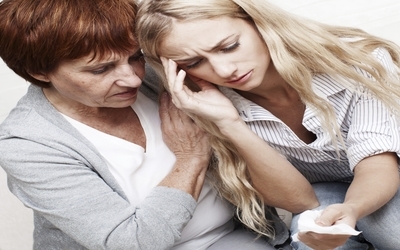How to Help Your Child Recover From a Traumatic Experience
When a loved one is recovering from emotional and psychological trauma, it takes time to get their mental wellness back on track. The victim needs time to heal and to mourn the losses they’ve experienced, and so it can be difficult to stop yourself forcing the healing process along. If you’re trying to help someone through a traumatic experience, be patient with the pace of recovery, as well as being prepared for difficult and volatile emotions.
If the person you’re helping recover from a trauma is a child, open communication is key. The child needs to know that it’s normal to feel scared or upset. How you respond to traumatic events is also important, as your child may look to you for cues on how they should react. Therefore, you need to try to deal with symptoms of trauma in a positive way. Here are some of the ways in which children react to emotional and psychological trauma, as well as advice to help your child deal with them:
1. Regression: As trauma can have a destabilising effect on your sense of wellbeing, many children make an attempt to return to an earlier stage when they felt safer and more cared for. If the traumatised child is young, he or she may begin wanting a bottle or wetting the bed again. Older children demonstrate regression in different ways; mainly through the fear of being alone. If your child’s wellness is affected in this way, it’s important that you are patient and comforting.
2. Self-blame: When bad things happen to you, it’s common to believe that the event is your fault in some way. This is particularly the case with children who are below the age of seven or eight, as they generally tend to think that if something goes wrong, it must be their fault. No matter how irrational this might sound to you, self-blame can take its toll on your child’s self-confidence and emotional health for years to come and so it’s important to communicate with your child, and make sure that he or she knows the event was not their fault.
3. Sleep issues: There are many sleep disorders that arise out of childhood trauma; some children have difficulty falling to sleep while others wake frequently or have troubling dreams. In this case, the name of the game is comfort so try giving your child a stuffed animal, soft blanket or torch to take to bed with them. Spending extra time together in the evening, such as doing quiet activities or reading, can help to relax your child and prepare them for the night ahead. Although, as parents, a restless child can interfere with your sleep patterns just as much as theirs, it’s essential that you remain calm and patient. It could take a while before your child can sleep through the night again.
4. Feelings of helplessness: When traumatic events occur to anyone there’s often nothing the victim can do to prevent them, but this obviously becomes paramount when it comes to children. Your child may feel or grow up to feel helpless, or you as parents may experience a sense of helplessness at not being able to protect your kid. However, you can help yourselves and your whole family to achieve a renewed sense of hope and control by getting involved. Become active in a campaign to prevent an event like this one from happening again, write thank you letters to people who have helped, and care for others who have been likewise affected.


Comments are closed.